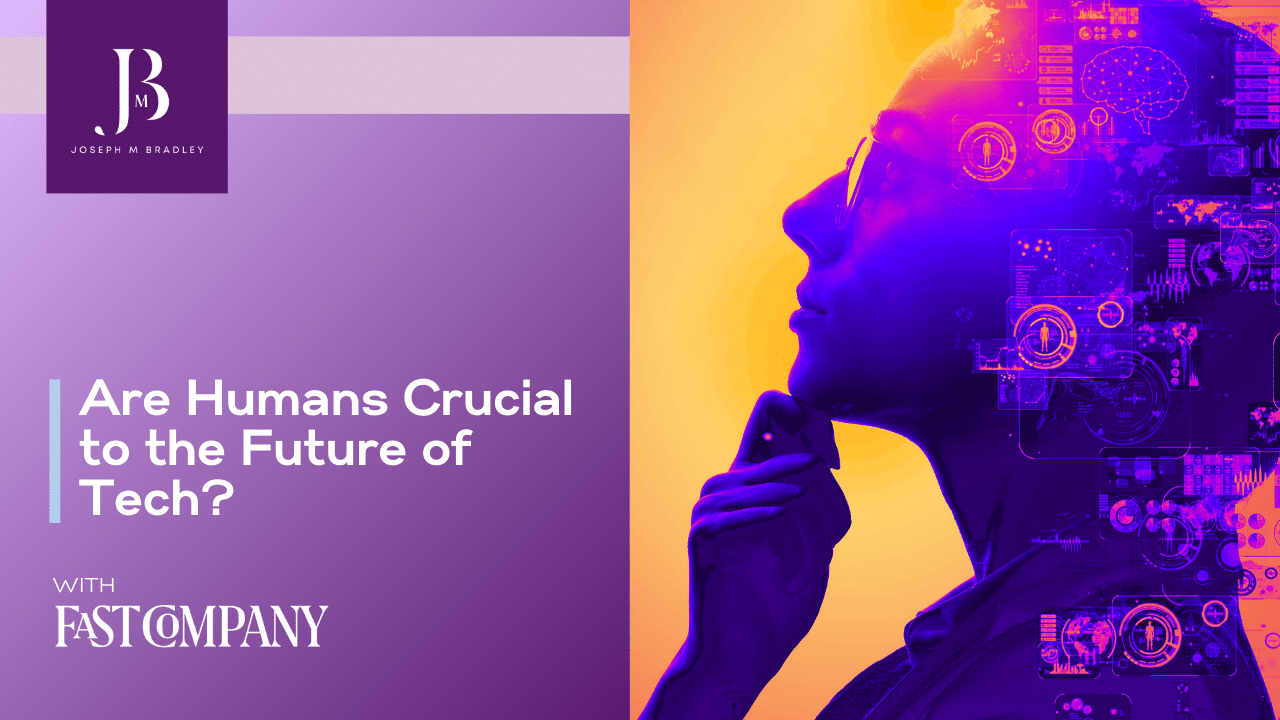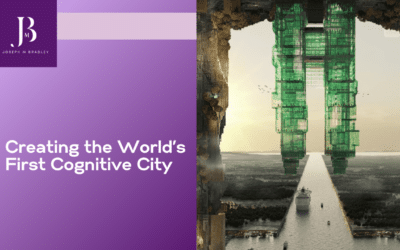No matter how advanced technology becomes, it will never replace humans. Humans will always be key to steering our future-forward societies.
I sat down to talk to Fast Company Middle East about the future of tech and business and how we are creating an environment where innovation and entrepreneurship can thrive.
Transcript:
Removing friction; friction from our lives. And the first thing they think about is our vocabulary. No longer will you have the term, “digital divide”.
Which future technologies are expected to change the way we work and live?
This is always an exciting question and exciting topic. When you think about future technologies, the first one is really a category. I think when you talk about metaverse technologies, it’s fundamentally about blending the physical world with the virtual world. And all these technologies will create a new environment for us to experience. This, I think is super exciting and a game changer.
The second one that’s also really important is when you think about extending that to real and existing environments. You think about human avatars. The reason that’s so important is because if I’m in a digital world, avatars will give me the ability to actually have an experience in the physical world, in existing environments, not necessarily new ones.
The last one, in my opinion, will probably be the most dramatic and the most productive technology we’ve seen in quite some time; that is natural language processing. What does that mean? That means that at the end of the day, you will be able to talk in your native language, I can talk in my native language, and we will be able to understand each other. This ultimately fully unlocks the power of human potential to collaborate.
What would a seamless society look like?
When you think of a seamless society, it’s ultimately about removing friction; friction from our lives. And the first thing that I think about is our vocabulary. No longer will you have the word, “digital divide”. Why? Because you have a situation with digital air. When you walk around, you have connectivity. Whether you’re in Africa or you’re in Silicon Valley, you have the same access to connectivity to drive innovation and really fuel the core source of education in an economy.
Next thing you think about is the word, “unemployment”. Well, unemployment exists because we don’t know how to fully, efficiently allocate supply with demand. In a seamless society, you have the ability to engage and disengage resources dynamically. Because you have this common pool of data, this source of data that is so intelligent, it’s able to match supply with demand.
Lastly, I think about basic human needs; the ability to eat, the ability to sleep, the ability to have access to water. All of these things can be solved because we can remove the information friction, the economic friction, the educational friction. All these things in a seamless society, is what is at the heart of what NEOM is trying to achieve.
How can a digital twin help create sustainable economic opportunities and improve citizen services?
When you think about creating value for citizens, the first thing that’s fundamental is you must have data. No trust means you don’t get data. No data means no value. It is just that simple. In order to create value, the first thing that has to happen is the fundamental concept of trust. Once you have trust, then you can create very unique opportunities and economic value associated with data and insight. But at the heart of that process is the ability to solve what I like to call the “privacy paradox”. Each of us are giving more and more and more of our information each and every day. Yet each of us are increasingly concerned with how our data is going to be used more and more each and every day. Why do we do this? Because value in this world is contextually based. Privacy is directly proportional to the value I receive. And that value is defined by how much trust I have in you, versus the reward of how much experience, how much utility I get. This is fundamentally important to solving and creating economic value as we think about building a cognitive city.
How is the convergence of multiple exponential technologies impacting us?
When you think about these technologies that are converging upon us, it fundamentally has reshaped and redefined our relationships with one another. I recall during COVID, the first time we figured out that we couldn’t go out and actually see other people. They said, you got to quarantine. What does that mean? Well, that means you’re spending weeks, if not months, inside your house with an inability to connect with someone. And then something happened. Then everybody got on their favorite collaboration tools. I saw people in my family that I hadn’t seen in 15 years. All of a sudden, we were getting on these calls, where there wasn’t just four or five of us like when we meet in person. There’d be 50 or 100. So, one of the core things is redefining our relationship with one another.
It’s also redefining our relationship with nature. If you think about how we treat nature and global warming and what technology’s impact is, we have completely changed our expectations. It’s not simply good enough anymore to have a neutral impact. No, we want to enhance the environment. And lastly, it’s redefined our relationship, quite frankly, with technology. How we interact and what we expect of technology has completely changed.
How will TONOMUS fuel innovation and economic development?
When you think about innovation in economic development constraints are what typically comes to mind. We’re constrained in this world today with labor. We’re constrained in this world today around land. And we’re constrained in this world today with capital. In a digital environment, if you think about labor, you can have a 6 year old kid to a 95 year old retired individual, able to come online and think of their concepts and quickly create products, services, innovations, games, ways of interacting in a digital environment. When you think about land, there is no issue in a digital world. We can create as much of it as we need. There is no limitation. When you think about capital, most folks around the world have access to some type of electronic medium. A phone is good enough to be able to interact and experience the metaverse of this digital world.
So how does it fundamentally reshape or create value? By eliminating the core elements of friction that exist today around land, around labor, and around capital.


